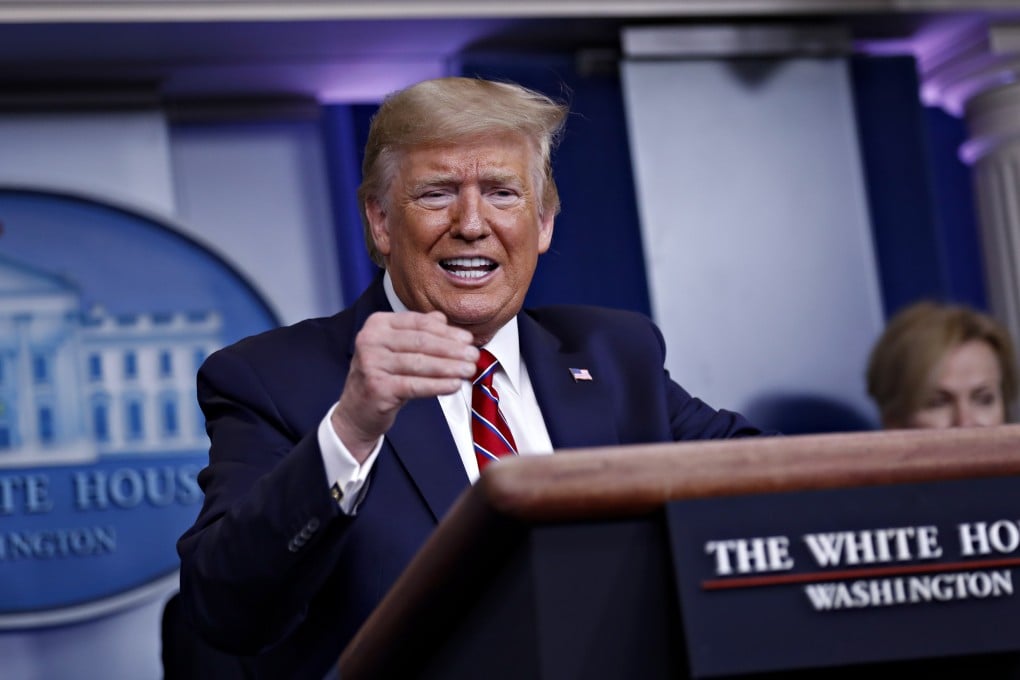Coronavirus: misinformation and false claims in Donald Trump’s responses to pandemic
- A week in which the US president’s attitude shifted publicly about the coronavirus still contained a disregard for detail and a series of dubious statements
- FDA approval of a coronavirus treatment and Asian-Americans’ support of the term ‘Chinese virus’ were just two topics where Trump’s statements were challenged.

In mid-January, back when concern over US defences against the coronavirus was just another Democratic “hoax”, US President Donald Trump shrugged off the suggestion that the outbreak could ever swell into a global crisis.
“No, not at all,” he said, when asked by CNBC’s Joe Kernen whether he was concerned about the possibility of a pandemic. “It's one person coming in from China, and we have it under control. It’s going to be just fine.”
Two months later, with a US death toll surpassing 200 and a plummeting stock market, the president’s tone has changed. He always knew it would be a pandemic, he said this week. In fact, he “felt it was a pandemic long before it was called a pandemic”.
But while Trump has in recent days appeared to treat the subject with increased solemnity, his trademark disregard for detail – ranging from exaggerations to outright lies – has continued. The South China Morning Post reviewed some of the false claims Trump has made over the past week while addressing the pandemic and his administration’s response to it.

Claim: FDA approved malaria drug for coronavirus application
At a Thursday briefing touting the relaxation of pharmaceutical regulations, Trump said incorrectly that the Food and Drug Administration (FDA) had expeditiously approved chloroquine – a drug for malaria – for treatment of patients with Covid-19.